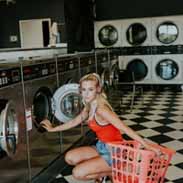American HIstory Chapter 10 Section 1 – Flashcards
Unlock all answers in this set
Unlock answersquestion
Henry Clay-
answer
A man from Kentucky who favored federal action and spoke for the people in the West who thought the country needed better roads and canals to transport goods from one region to another
question
John C. Calhoun-
answer
A man from South Carolina who favored federal action and spoke for the interest of the South. While at first a defender of national unity, he later put more emphasis on the idea of states' rights
question
Daniel Webster-
answer
A man from Massachusetts who favored federal action and became a spokesperson for the Northeast. At first he opposed high tariffs, but he later came to support them as a way of protecting industry
question
Charter-
answer
A legal document giving certain rights to a person or company
question
Dumping-
answer
Selling goods in another country below market prices
question
Contract-
answer
An agreement between two or more parties that can be enforced by law
question
Capitalism-
answer
The economic system in which privately owned businesses compete in a free market
question
Interstate Commerce-
answer
Trade between two or more states
question
Which groups supported and which group opposed tariffs?
answer
The North liked the tariffs because that was were most of the factories were. The South did not like the tariff because it made Southerners pay more for their goods.
question
Do you think the American System offered a good solution to regional differences? Explain.
answer
I don't think they did. I don't think that because it made the North and South more different and more hateful towards each other because of there differences.
question
What did McCulloch v. Maryland decide?
answer
It ruled that the states had no power to interfere with federal institutions. A tax, said the Court was a dangerous interference because "the power to tax involves the power to destroy". According to Marshall, a state cannot pass any law that violates ta federal law.
question
What did the Supreme Court decisions in McCulloch v. Maryland and Gibbons v. Ogden have in common?
answer
Both strengthened the power of the federal government
question
Reread the text following the headings "The Tariff of 1816" and "Clay's American System". What did Clay believe would result from high tariffs?
answer
It would result in wealth for all the regions, not just the North.
question
1. The Era of Good Feelings Part 1
answer
A. Republicans took firm control of the government with the end of the War of 1812 B. The Presidential Election of 1816 had been a landslide with Republican James Monroe from Virginia
question
1. The Era of Good Feelings Part 2
answer
C. The Federalist Party began to lose power within a few years the party disappeared D. President Monroe wanted to promote unity
question
1. The Era of Good Feelings Part 3
answer
E. Local newspapers described this new sense of national unity as the "Era of Good Feelings." This name stuck for his two terms in office. He had no opponent in the election of 1820.
question
2. Building the National Economy Part 1
answer
A. Americans believed the Federal Government should take action to increase economic prosperity in all regions of the country. Republicans began to see good in federal programs
question
2. Building the National Economy Part 2
answer
B. Three Young Members of Congress Became Spokespersons for Their Regions: 1.) Daniel Webster- From Massachusetts- Supported Tariffs 2.) John Calhoun- South Carolina- Opposed Tariffs 3.) Henry Clay- Kentucky- Supported Constitution of Roads and Canals
question
B. Three Young Members of Congress Became Spokespersons for Their Regions:
answer
1.) Daniel Webster- From Massachusetts- Supported Tariffs 2.) John Calhoun- South Carolina- Opposed Tariffs 3.) Henry Clay- Kentucky- Supported Constitution of Roads and Canals
question
Daniel Webster-
answer
From Massachusetts- Supported Tariffs
question
John Calhoun-
answer
South Carolina- Opposed Tariffs
question
Henry Clay-
answer
Kentucky- Supported Constitution of Roads and Canals
question
2. Building the National Economy Part 3
answer
C. The Second Bank of the United States 1.) The first bank was created in 1791, but ceased to exist in 1811 2.) Economy suffered without a bank 3.) State banks made too many loans and issued too much money. Caused an increase in spending and led to rising prices 4.) Congress established the second bank in 1816 to cure these problems 5.) The New Bank was privately owned just like the first bank and had a charter to operate twenty years. Gave a boost to American businesses
question
C. The Second Bank of the United States Part 1
answer
1.) The first bank was created in 1791, but ceased to exist in 1811 2.) Economy suffered without a bank 3.) State banks made too many loans and issued too much money. Caused an increase in spending and led to rising prices
question
C. The Second Bank of the United States Part 2
answer
4.) Congress established the second bank in 1816 to cure these problems 5.) The New Bank was privately owned just like the first bank and had a charter to operate twenty years. Gave a boost to American businesses
question
2. Building the National Economy Part 4
answer
D. Tariff of 1816 1.) Nation also faced a problem with foreign competition 2.) British goods have been kept out of America with the Embargo Act/ The War of 1812. Had helped the American Economy grow
question
D. Tariff of 1816
answer
1.) Nation also faced a problem with foreign competition 2.) British goods have been kept out of America with the Embargo Act/ The War of 1812. Had helped the American Economy grow



